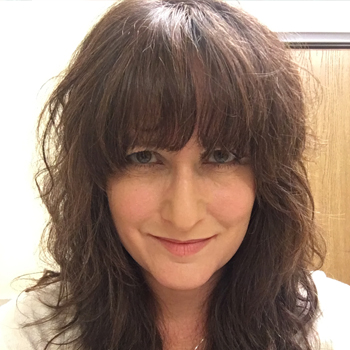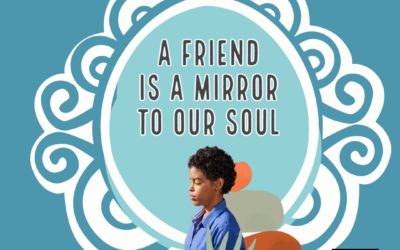
One day as I was driving to a Yoga class, I was running late, and in my rush to make it, I went too fast down a small side neighborhood street. By “too fast” I am not saying I went 80 in a 35 zone, it was more like I went 40 in a 30 zone — not extreme, but still, really too fast for that type of neighborhood street, and still breaking the law.
I wasn’t even paying attention to it, being all focused on getting to the class. However, after parking in the lot and exiting my car, another car came screeching to a halt just in front of me, and the driver began literally screaming at me. He started the conversation with a negative descriptive word that started with a “B”, and went from there, telling me in no uncertain terms that I had been driving way too fast in his neighborhood.
Now, my initial reaction to this was primal. To have a car cut you off as you walk across a parking lot, then have the driver start yelling at you red in the face as he calls you names, does not immediately elicit a positive response from me, no matter how right they may be. I wanted to yell back. I wanted to defend myself. I wanted to tell him he was wrong.
However, in the back of his car I saw a young boy looking scared. And as I saw that kid’s face, I realized that in fact, the driver was correct — I had been driving too fast in a small neighborhood street where children and dogs were running around, and disaster could have happened. Not to mention breaking the law.
So there I am torn, in a heartbeat I am feeling two very different things; first: I must defend myself from Crazy Screaming Car Guy. But Second: Mr. Crazy Screaming Car Guy is technically correct in what he is saying to me about my behavior.
So what do I do?
I took a breath as he continued to yell at me asking me if I’d heard him (“B…tch” he added yet again, which didn’t help the matter much). During that breath I quieted my mind a moment and recognized the words I wanted to say to him, which honestly, I am not kidding, were the following:
“Wow, I am so sorry, you’re right, I was driving too fast and I apologize. Thank you for the reminder, it would have been horrific had I injured a child or animal in my haste to get to my yoga class, not to mention I was breaking the law, and I appreciate you bringing this to my attention so that I will be more aware in the future. I’ll watch my speed from now on. But I also recommend you approach people in a more respectful manner in the future, rather than coming at them aggressively yelling. It does more harm than good as your voice, as loud as it is, is actually not being heard at all because of it. But thank you for making me aware, I won’t do this again.”
Great response, right? Rational and reasonable and righteous. Put him in his place while still being humble. How cool is that?
Dang how I wish I’d actually said it. But I didn’t.
Instead, due to his abusive behavior, I just could NOT get those words out of my mouth. I was too emotionally upset. All he received was a semi-swallowed; “Oh, sorry” as I stumbled to get away from him and into my yoga class. He continued yelling at me as I ran as fast as I could into my class, which at that point I may as well have missed, since I was now so out of sorts from the confrontation that I couldn’t focus at all.
Now, there were several lessons that came into play here. The first is that even though I still did not react as I would have liked to have done — which is, to calmly respond to him without rancor and tell him what I was actually thinking (which I am guessing would have shocked him to the point of shutting up) — I still did respond in a better way than my initial reaction of anger and self-defense, simply by taking the breath and giving myself the heartbeat to really evaluate the truth of the situation.
After all, if I’d responded according to the emotions and reactions I was having in that moment, I could have said to him as I did to my dad when I was five;
“You make me so mad!”
Or something even more angry, and gotten into a further fight with him, defending myself as I felt so justified to do in that moment. But I didn’t – and it was good I didn’t. I would have only caused further confrontation and argument and potentially put myself into an even more dangerous position with this very abusive man (who obviously was telling himself that I “made” him that angry.)
So, no, I didn’t stand up to him, I didn’t yell at him, I didn’t try to defend my behavior — but nor should I have in that situation, because I was in the wrong. And I was able to get out a (somewhat garbled) “Oh, I’m sorry,” which was at least a small part of what I was thinking in my head. And finally, rather than stand there fighting and most likely creating an even worse scenario, I chose to walk away from that negative behavior and not honor it with a response. It was a conscious choice, though my angry reaction was to stay and fight, to yell back.
The second lesson is that his attitude hit a trigger in me which went so deep that it took me several days and a couple of discussions over wine with my friends to figure out why I did react that way. He really upset me — but even in that situation, I could see that he was not the one who upset me… he was simply a trigger to something else in me that was then upset. I chose to be upset by that situation, yet I knew that I could very well have chosen not to be upset by it, had I the tools to do so.
That situation gave me the opportunity to find out what it was in myself that reacted to him and that moment as I had. And once I did, I found that the anger over it, and the humiliation and upset-ness I was feeling, all completely dissipated. I saw he was simply a catalyst for another lesson I needed to learn — as I hopefully was one for him. (Like, how to approach people so they actually hear what you are saying instead of simply starting a fight. And how not to speak to a woman, at any time for any reason.)
So by recognizing that he was not the one who “made” me angry or hurt me, that I was choosing to feel that due to the trigger he set off in me, I was then able to dig down into my reactions to find and heal a very deep hurt within me. In this way I recognized that even though he had acted like an … well, a jerk (to be kind), I could in the future decide the appropriate response, rather than allowing him to decide my response for me by his aggressiveness.
Because really that’s what it is. When you allow someone else’s anger, aggression, or other negative energy to cause you to immediately react in a hair-trigger response — usually reflecting back whatever negative energy it is they called up — you are literally allowing them to decide for you who you are becoming. You are allowing them to decide who YOU are. You are letting them “make” you into their own image.
But you can choose to “make” yourself into your own image. Or the image of God, if you prefer. To MAKE yourself be calm during bad traffic, or MAKE yourself apologize and walk away when someone is yelling at you rather than yelling back, or MAKE yourself find hope in a seemingly hopeless situation, MAKE yourself be happy even in the midst of pain… you can choose to MAKE yourself anything you want to be.
It’s up to you as to what that is. The real question is: what is it you want to be?
Do you want to be a bitter, angry person? Fine. React with anger to every situation you encounter, especially those you see as being hurtful to yourself, as that man in the car did. See what kind of reactions you receive back. My bet is, you are helping others to simply respond in ways that make you even angrier, as I would have done in the past with that man. You are giving them the tools to reflect back to you exactly what you see yourself as being. Angry.
But if you want to make yourself into something beautiful, someone wise, someone calm, someone who projects confidence and authority and peace into the world, you can. Choose to be that person, to make yourself into that, to see yourself AS that and react accordingly. Choose to make yourself an instrument of peace, and you will be. And others will respond to it and treat you differently.
Excerpted from “Things My Father Never Knew He Taught Me” by Jeanette Elaine DuBois copyright 2018 EscapeFilms, all rights reserved

Jeanette Elaine Dubois
Jeanette is a film & tv editor, writer, director and producer who’s worked on Emmy & Telly Award winning shows, movies, and music videos for a variety of networks. She’s also a trained operatic who mostly sings to her cats now, though sometimes she expands her audience to her family & friends. She loves gardening, good books, good wine, and good conversations, preferably all at the same time.
Connect With Us on Social Media!
RECENT FAVES
Perfect Banana Cream Pie: Reliable Recipe
Jean shares a recipe for an absolutely delicious banana cream pie. It’s smooth and tasty, just perfect for an after dinner treat!
A Friend is a Mirror to Our Soul
Our wonderful Cheryl Farrell uses iconic characters from the TV series CHEERS to personify actual friends of hers and shows how each friend reflects something about Cheryl herself.
International Medical Corps: Providing Hope Amid Dire Circumstances
Jean Trebek shares an interview with the President of the International Medical Corps who serves the world’s most vulnerable people.




And where can I get my hands on “Things My Father Never Knew He Taught Me?” Really want to read that!